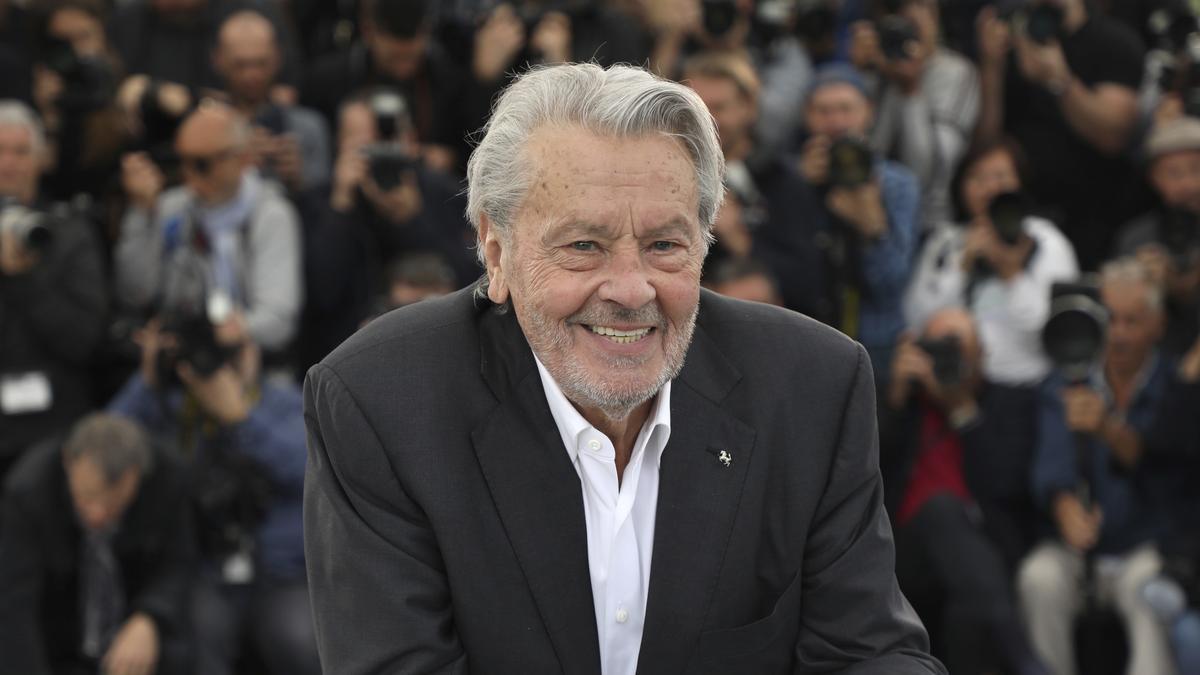
Alain Delon, the internationally acclaimed French actor known for his magnetic presence on the big screen, has died at the age of 88, as reported by various French media. Delon captivated audiences worldwide with his blend of rugged charm and emotive vulnerability, portraying both villains and heroes with equal finesse.
The announcement of his passing came from his children through the French national news agency Agence France-Presse, a practice not uncommon in France. The news quickly went viral, with social media platforms flooded with tributes and memories of his extensive, multi-faceted career. Leading French media outlets dedicated ample coverage to commemorate the illustrious life of this iconic figure.
Born on November 8, 1935, in Sceaux, just south of Paris, Delon faced a turbulent childhood marked by his parents’ separation. After being placed with a foster family and later attending a Roman Catholic boarding school, Delon joined the navy at 17 and was sent to Indochina. Returning to France in 1956, he worked various jobs—from waiting tables to working in a meat market—before finally finding his path into acting.
Delon’s vast filmography is a testament to his talent and versatility. His first major breakthrough came with the 1960 film “Plein Soleil” directed by René Clément, where he portrayed a chilling murderer who assumes the identities of his victims. The role set the stage for a prolific career that saw Delon collaborating with some of the most esteemed directors in cinema history.
Among his notable collaborations was his work with renowned Italian director Luchino Visconti. In 1961, Delon starred in “Rocco and His Brothers,” a critically acclaimed film where he played a selfless brother. The movie won the Special Jury Prize at the Venice Film Festival, solidifying Delon’s reputation as a serious actor.
Delon’s extraordinary career continued with films like Visconti’s “Le Guépard” (“The Leopard”) in 1963, a film that won the Palme d’Or at the Cannes Film Festival. His repertoire also included “Is Paris Burning?” directed by Clément, which featured a screenplay by Gore Vidal and Francis Ford Coppola, and the 1972 film “The Assassination of Trotsky,” directed by Joseph Losey.
His foray into production began in 1968, during which he produced 26 films by 1990. Delon’s confidence in his craft was epitomized by his statement in a 1996 interview with Femme, where he expressed his desire to be loved as he loved himself, mirroring his charismatic on-screen persona.
.
Despite a stunning career, Delon was not without controversy. In 2013, he resigned from presiding over the Miss France jury following backlash over his comments on women, LGBTQIA+ rights, and migrants. However, in 2019, he received a Palme d’Honneur at the Cannes Film Festival, an accolade that reignited debates about his controversial views.
Going back to the roots of his life, Delon’s personal journey was no less intriguing. He had a son, Anthony, with his then-wife Nathalie Canovas, who co-starred with him in the 1967 film “The Samurai.” His later companion, Rosalie van Breemen, bore him two more children, Anouchka and Alain-Fabien. Delon was also believed to be the father of Ari Boulogne, the son of German model and singer Nico, although he never publicly confirmed this.
Delon’s self-professed proficiency extended beyond acting. He dabbled in various ventures, from breeding trotting horses to creating a line of cologne and other accessories. He amassed a notable collection of paintings and sculptures, further displaying his wide array of interests.
In 1999, Delon announced his retirement from acting, only to continue his career sporadically with roles in films and television. His final film appearance came in 2022 in “The Empty House,” directed by Patrice Leconte, where he starred opposite Juliette Binoche.
Throughout his life, Delon’s charisma and good looks remained a significant part of his appeal. In a 2002 interview with L’Humanite Hebdo, he famously asserted, “You’ll never see me old and ugly because I’ll leave before, or I’ll die.”
In 2019, during a gala event at the Cannes Film Festival, Delon reflected on his life with a sense of accomplishment. “One thing I’m sure about is that if there’s something I’m proud of, really, the only thing, it’s my career,” he said, wrapping up a remarkable journey that left an indelible mark on world cinema.
Alain Delon’s death marks the end of an era, but his legacy as one of the most compelling actors of his time will continue to influence and inspire generations to come.












